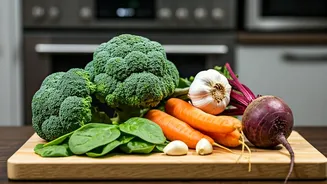Understanding Fatty Liver
Fatty liver disease occurs when excess fat accumulates in the liver. This condition can stem from various factors, including excessive alcohol consumption
and lifestyle choices. There are two primary categories: alcoholic fatty liver disease (AFLD), associated with alcohol intake, and nonalcoholic fatty liver disease (NAFLD), which is not related to alcohol. NAFLD is often linked to conditions like obesity, diabetes, and high cholesterol. The liver's crucial role involves filtering toxins, producing bile for digestion, and storing energy. When fat builds up, it impairs these essential functions. Early stages may not show symptoms, but as the disease progresses, individuals may experience fatigue, abdominal discomfort, and, in severe cases, liver damage such as cirrhosis. Managing fatty liver disease involves dietary changes, such as reducing processed foods and refined carbohydrates, combined with regular exercise, which can help reduce fat accumulation and support liver function.
Leafy Green Powerhouses
Leafy green vegetables are nutritional powerhouses, packed with vitamins, minerals, and antioxidants. Incorporating them into your diet can significantly benefit liver health. Spinach, a versatile green, contains compounds that promote detoxification and reduce inflammation, thereby supporting liver function. Kale, another excellent choice, is rich in antioxidants and fiber. Its nutrients help protect the liver from damage and enhance its detoxification processes. Furthermore, the high fiber content in both spinach and kale aids in healthy digestion, which is essential for liver health. When preparing these greens, consider steaming or lightly sautéing them to preserve nutrients. Leafy greens can be added to salads, smoothies, or as side dishes to any meal. Their inclusion can make a positive impact on your liver health.
Cruciferous Vegetable Benefits
Cruciferous vegetables are another valuable addition to your diet, particularly for promoting liver health. Broccoli is a prime example, known for its high levels of sulforaphane, a compound that supports detoxification pathways in the liver. It helps the liver remove toxins more efficiently, potentially reducing the impact of fatty liver disease. Cauliflower, closely related to broccoli, offers similar benefits. It also contains glucosinolates, compounds that aid in liver detoxification and protect against cell damage. Brussels sprouts, with their slightly bitter taste, are another excellent choice. These vegetables contain high fiber content and antioxidants that help reduce inflammation and support liver function. To maximize their benefits, lightly cooking cruciferous vegetables like steaming or roasting can maintain their nutrient content. Incorporating cruciferous vegetables provides several benefits, improving liver function and overall health.
Garlic's Liver Support
Garlic, a staple in many cuisines, is a powerful ally for liver health. It contains allicin, a compound with antioxidant and anti-inflammatory properties. Allicin can help protect the liver cells from damage caused by toxins and oxidative stress. Additionally, garlic aids in detoxification by activating liver enzymes, which help to eliminate harmful substances. It supports liver function and can assist in managing fatty liver disease. Garlic can be added to many dishes, including stir-fries, soups, and sauces. When using garlic, you can enhance its benefits by crushing or chopping it before cooking to release its beneficial compounds. Consuming garlic can have a protective impact on the liver, potentially improving its functionality and overall health. By making garlic a regular part of your diet, you are giving your liver a boost.
Beetroots' Detoxification Role
Beetroots are packed with nutrients that support liver function and detoxification processes, making them an excellent addition to a liver-friendly diet. They contain betaine, which can help reduce inflammation and protect the liver from fat accumulation. Beetroots also contain antioxidants that help neutralize harmful free radicals, safeguarding the liver from oxidative stress. Furthermore, beets support liver detoxification processes by promoting the elimination of toxins. When including beetroots in your diet, consider various preparation methods. They can be consumed raw in salads, juiced, roasted, or boiled. Regular consumption of beetroots can positively impact liver health, potentially aiding in managing and preventing fatty liver disease. Beets can be a tasty and beneficial addition to a balanced diet.



















